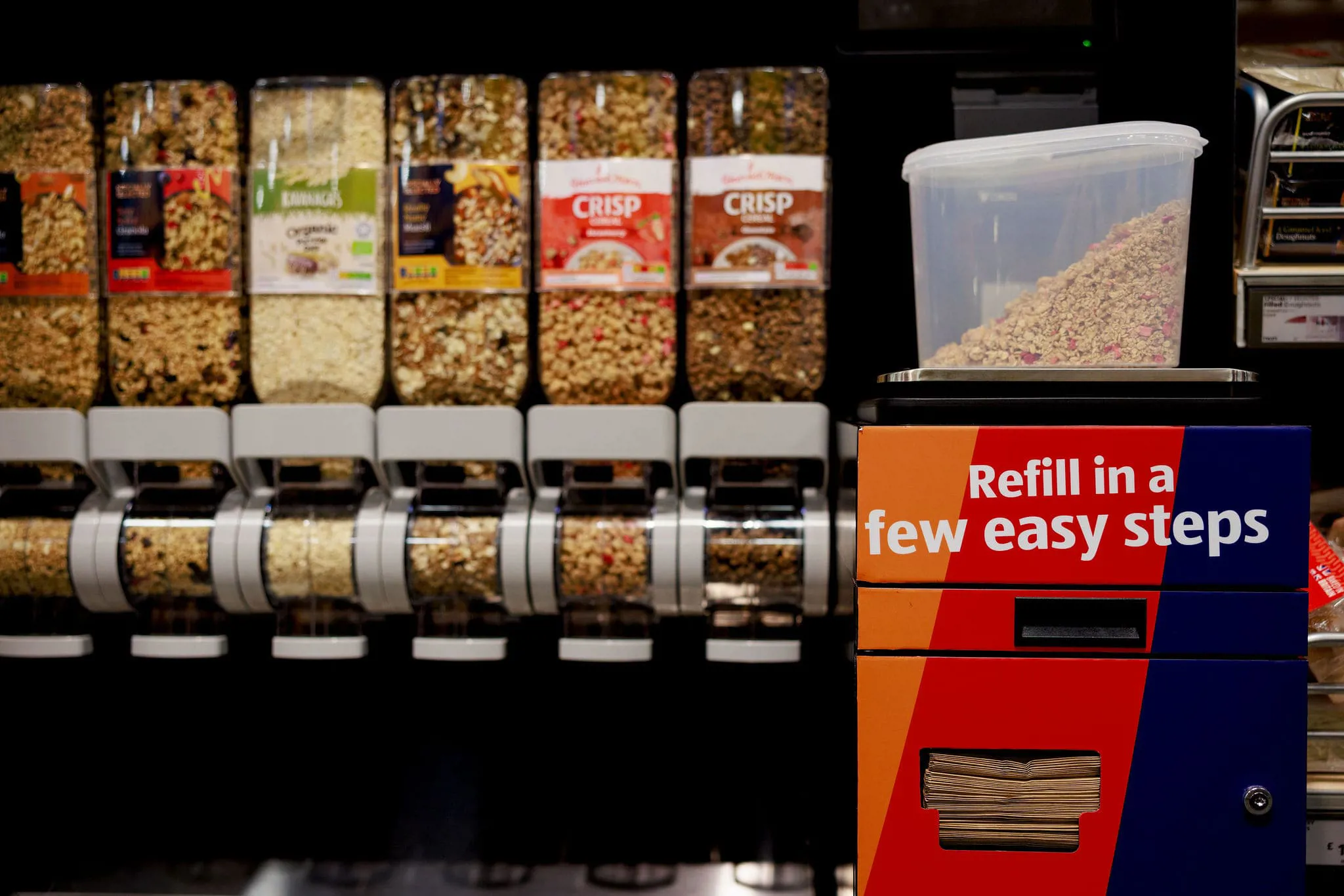In our latest episode of Climate Heroes, we spoke to Catherine Conway, Director of GoUnpackaged, a business dedicated to helping consumers reduce their single-use packaging footprint by transitioning innovative reuse systems and refillable alternatives.
We covered how their latest solution 'The Refill Coalition' is helping brands across the country to reduce their single-use packaging footprint as well as her top tips for having a more sustainable Christmas and New Year.
GoUnpackaged and Sustainable Packaging
GoUnpackaged are on a mission to revolutionise the way we transport items from supermarkets to our kitchens.
They're all about reusing and refilling, instead of using things once and throwing them away. By swapping out disposable containers for long-lasting, eco-friendly alternatives, they're tackling the packaging waste problem one product at a time.
They're currently partners with a wide range of businesses across the UK, from local organic food stores to large corporations including Waitrose, Asda, Holland & Barrett and Aldi.
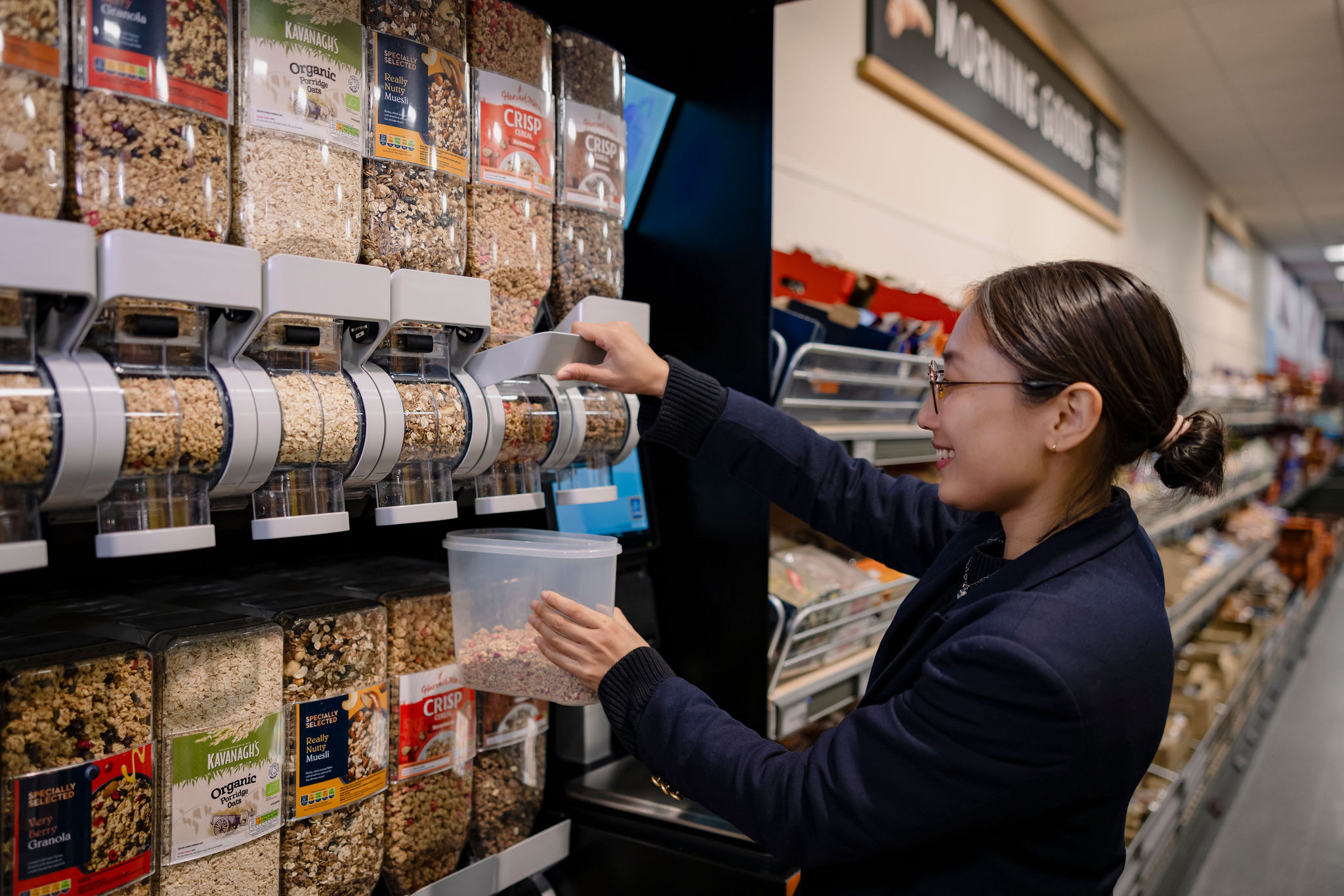
Their range of in-store and online refill solutions allow customers to bring their own reusable packaging, fill it with products they need, and then pay by weight at checkout. This eliminates the need for single-use packaging and clients reduce waste significantly.
Catherine Conway on GoUnpackaged and their refill solution
We had a chat with Catherine Conway, Director of GoUnpackaged, to hear about their journey and how they're making waves in the world of refills.
What is the problem with the current refill system?
Catherine: "The problem with the current system, as we call it manual refills, is that you need someone to take it off the shelf when it's empty, take it apart into 15 pieces, clean it hygienically and then refill it.
This is time consuming for staff, making it more expensive - and supermarkets staffing models are not set up for that level of intense handling, making it difficult to scale."
How does the refill coalition work?
Catherine "It works the same way as a beer keg in a pub, with the vessel full of the product becoming effectively like the beer keg.
It's standardised. It could be refilled by Kellogg's one day, get sent to Morrison's and it could come back out and you know. go back to Nestlé and so on."
How did you get started?
Catherine "We were supported from the start by Innovate UK and CHEP who really took to the idea, and every single retailer and brand that we spoke to gave us good feedback on how to improve the design, but at the heart they said, this is something we could all get behind.
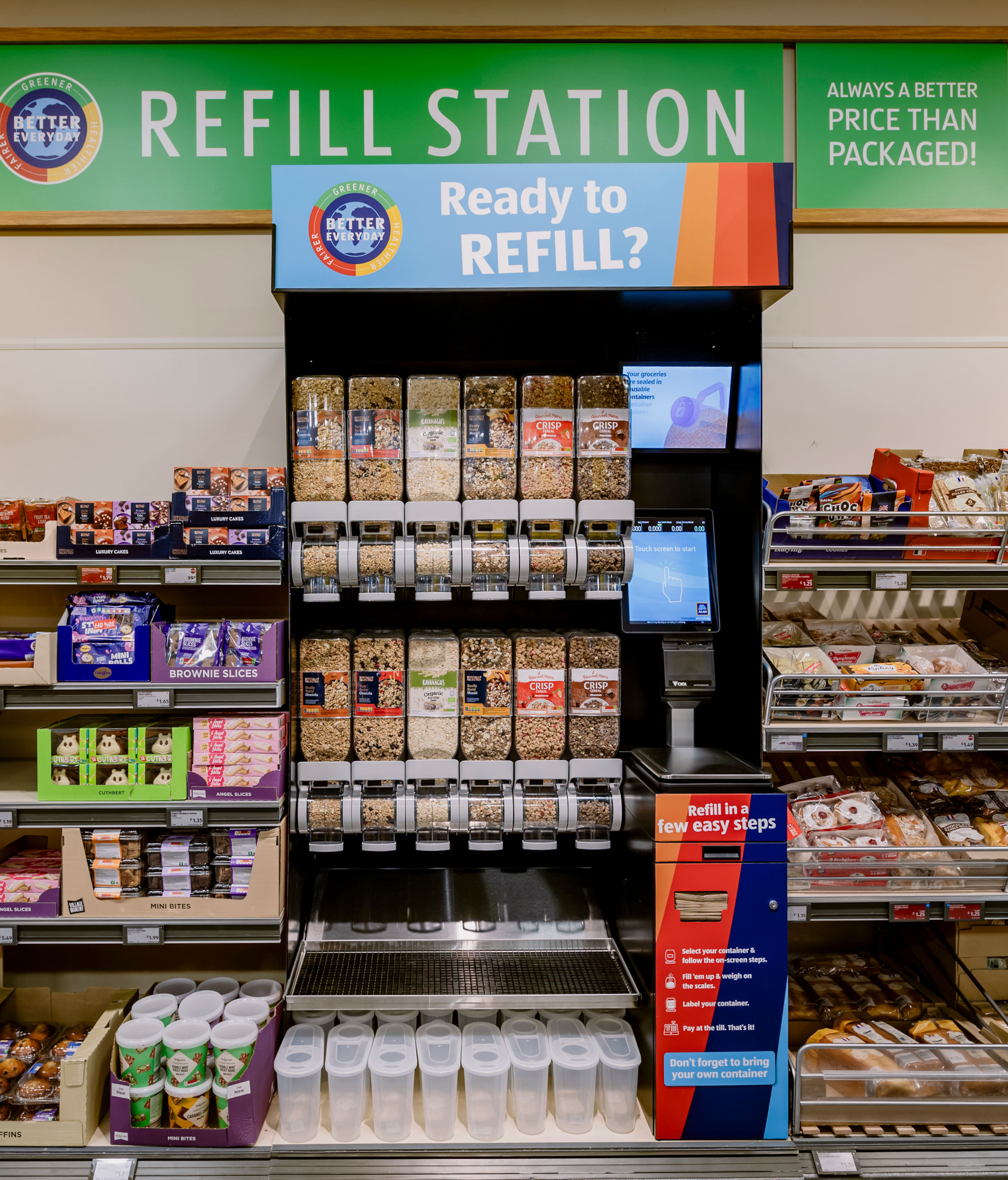
"As of last week, we launched the in-store store version with ALDI, which is exciting because they represent a more mainstream part of the market. We're selling dry goods such as muesli, granola, oats, and all of those products are sold at 5% cheaper - saving consumers money too.
What's next for the refill coalition?
Catherine: "We're working on the development a vessel that would be able to sell liquids. So non-food liquids like household cleaners and personal care products, Ocado are leading the line on the online version of that vessel which will be smaller and around 3 kilograms. - This is due to launch in early 2024."
The impact of packaging waste
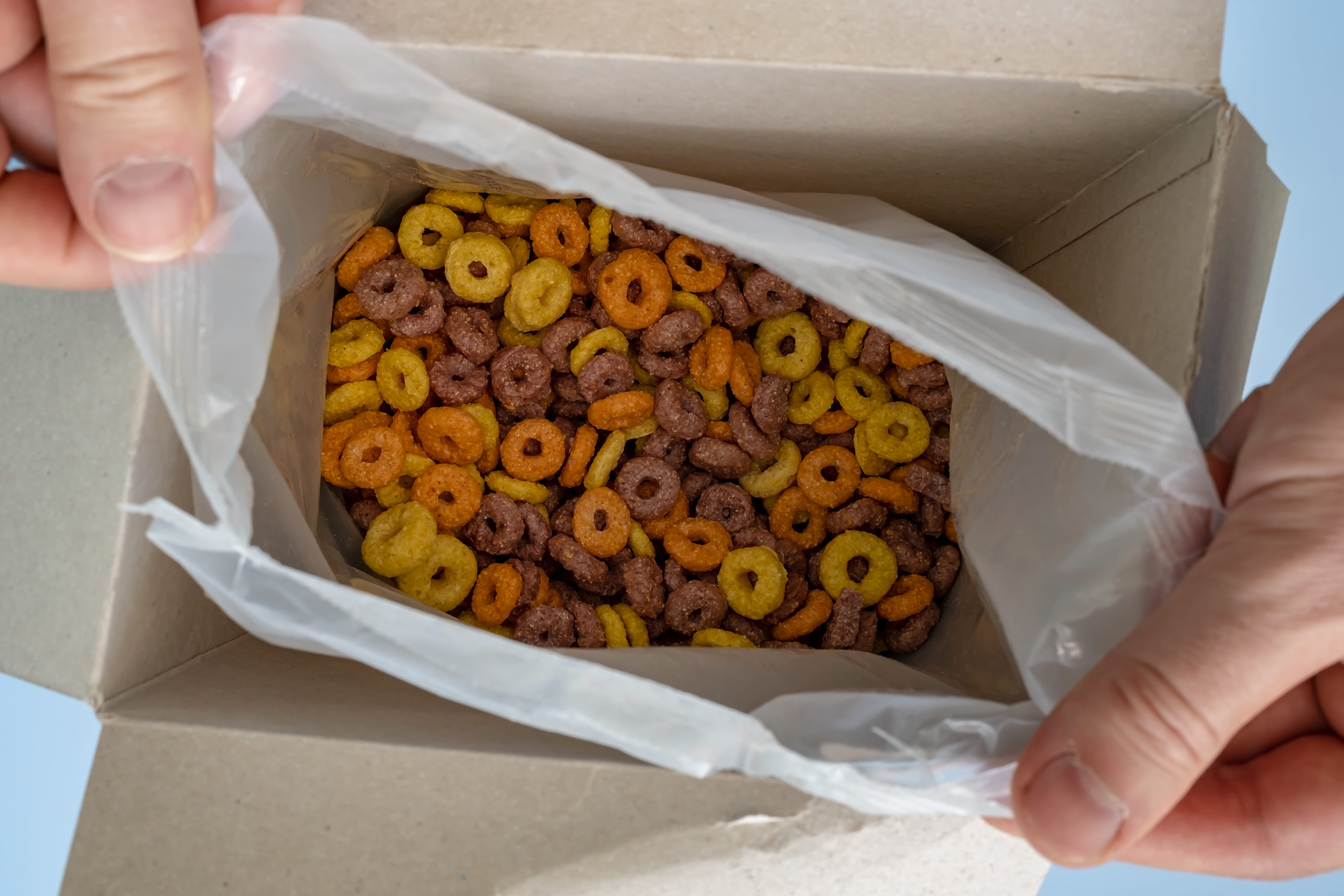
Single-use packaging is extremely harmful for the environment, causing lot of pollution and waste.
Every year, millions of tonnes of this packaging, mostly plastic, are thrown away after just one use, especially material used to package food and drink. This ends up in our oceans, landfills, and streets. It takes hundreds of years for these materials to break down, and they release harmful chemicals into the soil and water.
The supply chain involved with creating packaging is resource intensive, which makes climate change worse.
When we throw away this packaging, it can also release dangerous gases into the air. It's important to remember that even though single-use packaging is convenient for a little while, it's harmful to the planet in the long run.
We can help support the environment by using sustainable packaging options like our own container alongside GoUnpackaged.
If you have any Single-Use Plastics such as plastic bottles, cleaning products and containers, we have a dedicated recycling stream to turn these stubborn materials into new products.
The impact of Christmas packaging
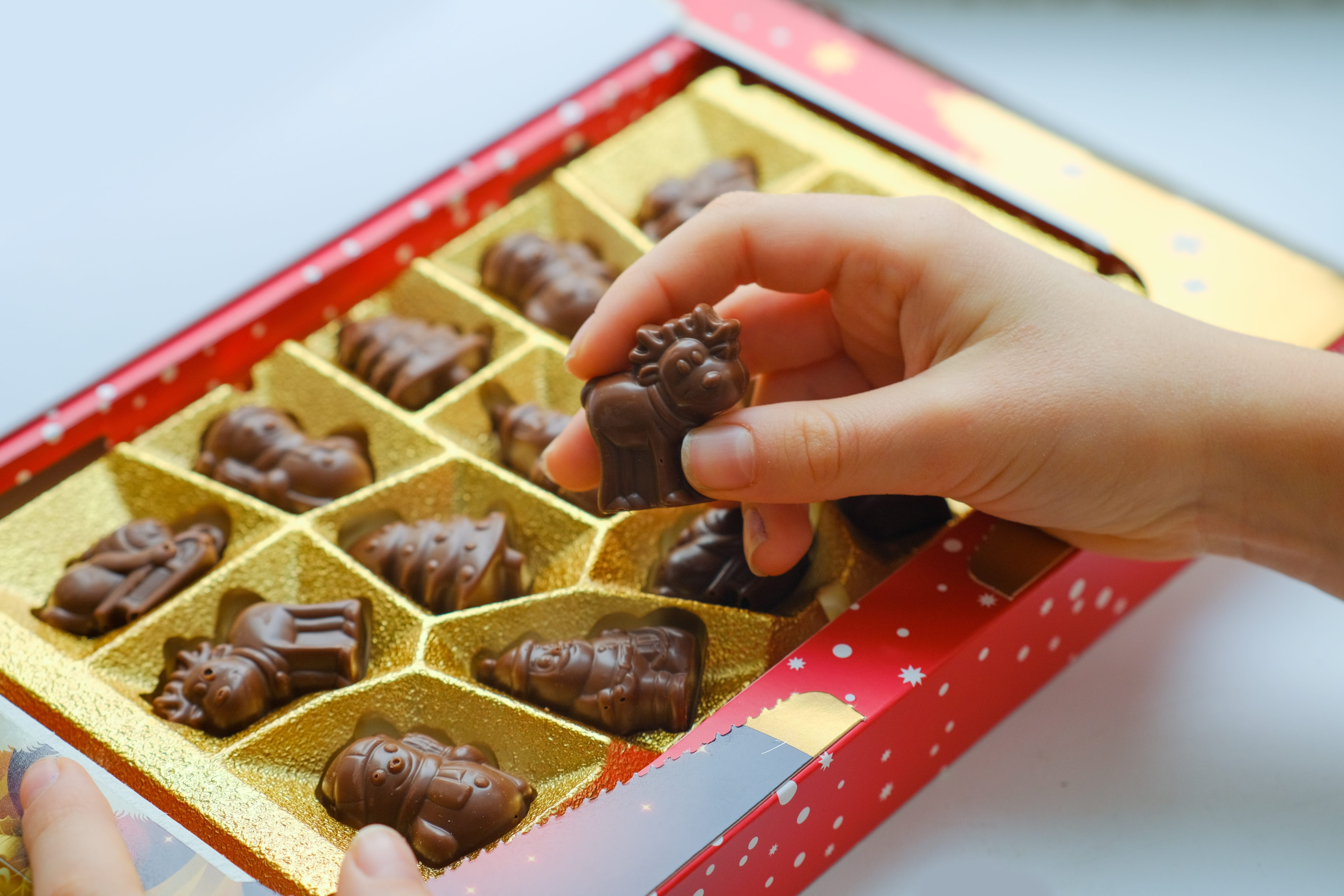
During the Christmas season, overconsumption becomes a big issue that worsens environmental concerns.
We tend to buy a lot, leading to more single-use packaging, disposable decorations, and non-recyclable wrapping materials. All this buying, using, and throwing away creates a huge waste problem.
Most of it ends up in our oceans and landfills. This unsustainable practice harms natural habitats and depletes our resources. We really need to be more mindful of our consumption during the holidays.
At First Mile we have a zero-to-landfill guarantee, so any materials we collect are either recycled into new products or converted into green energy to power the grid.
View our full range of recycling and circular economy services here.
Catherine Conway's tips for a sustainable Christmas
Catherine: "eBay or any other pre-loved site are great for gifts as you can buy anything there. You can get a reusable tree that you can rent and gets replanted afterwards, it comes with the roots so you're not actually cutting it down.
And all of the retailers are doing interesting, sustainable, reusable products so yes, you can head to Aldi or Solihull and refill for all the people in your life who want some lovely muesli as a Christmas present."
Listen to Climate Heroes now
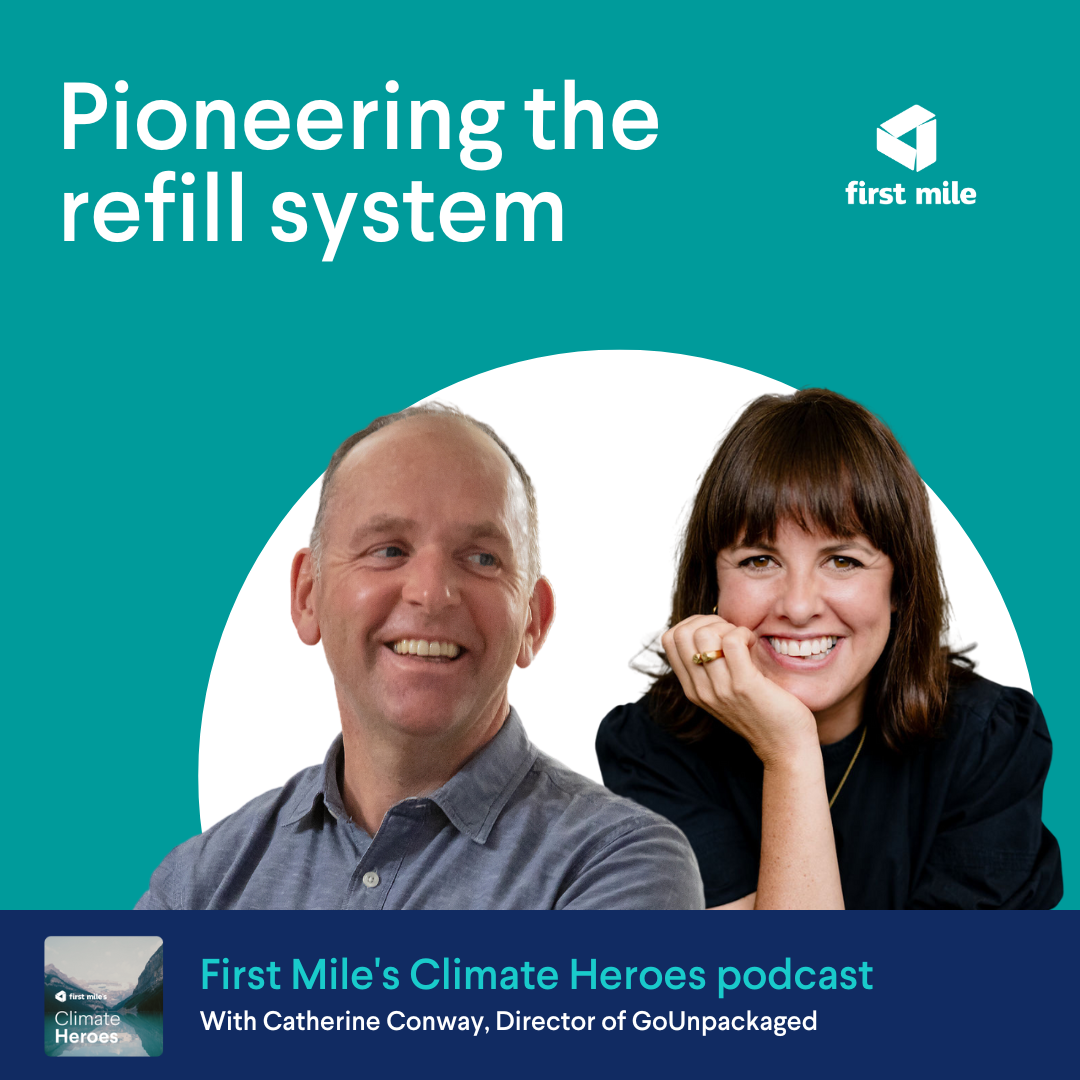
Ready to learn more about GoUnpackaged's sustainability-led solution to the single-use epidemic?
Tune in to our latest episode of Climate Heroes and listen to Catherine Conway and Bruce Bratley discuss the impact of packaging waste, how GoUnpackaged are fighting back and how we can make a difference this Christmas.
The GoUnpackaged solution
Want to learn more about GoUnpackaged and their efforts to promote sustainable packaging alternatives?
Find out how their innovative approach helps people and businesses cut waste and make a real impact by using reusable and refillable packaging on their website.
